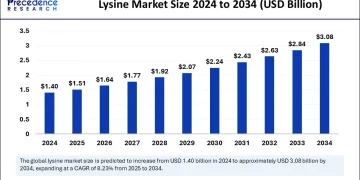The cost of developing an app is high. It takes a lot of time and money, therefore businesses are always searching for ways to launch market-ready applications faster and with fewer resources. In light of this, tools are now available to assist anybody, regardless of technical proficiency, in creating fully working applications that are on par with their more costly equivalents.
This revolutionary technology is just a collection of tools that make creating apps as simple as drag-and-drop. It goes by several names, including low-code, no-code, and rapid application development (RAD). Anybody may become a “citizen developer” with the help of these tools, which include features like wizard-based workflows, point-and-click programming, model-driven development, and a number of other related approaches. According to Forbes’ Jason Bloomberg, these low-code app platforms are much more disruptive than you may think. Innovative design and functionality are combined in creative mobile app development to provide captivating, user-friendly apps that stand out in the online market.
So, are these platforms with little or no coding really as innovative as they claim to be? Is it possible for app development to happen much more quickly? Are there any drawbacks to them? Furthermore, how can you be certain that they are the best mobile option for your company? Are these not the questions that cross your mind all the time? Yes, I am aware.
Don’t worry, I’ll address all of them for you right now, and by the time you finish reading this blog article, you’ll know exactly how to handle the mobility solutions for your company. So get started immediately.
How Realistic Is The Low-Code/No-Code Promise?
First things first: no, if you were hoping that an app would appear with a few button clicks, you were mistaken. Low-code app development platforms don’t work like that. While they may make it simpler to create applications without the need for manual coding, creating a really complex app still requires a significant amount of labor.
Having said that, you will find that developing apps on these platforms is much simpler. Let’s examine some of the main benefits they provide:
1. Quicker Time-to-Market
Compared to other app development methods, low-code platforms enable you to launch your app much quicker, which is one of its main benefits. Time-to-market is crucial in the modern world. Being the first to release your software gives you the advantage over competitors and allows you to be the trailblazer. The typical time frame for developing a mobile app is three to six months. However, you may reduce that duration to a matter of days or even weeks using these quick platforms. More than half of all B2E mobile applications won’t be created by IT departments or conventional developers, according to Gartner’s forecasts for 2023.
This is mostly because of the integrated app platform and visible tooling. Rapid platforms allow you to assemble the app logic graphically, eliminating the need for manual code authoring. You can generate applications more quickly thanks to a robust ecosystem of UI libraries, logic, and integration.
2. Faster Iteration Rate
Everyone is aware that an improved app experience is correlated with quicker and more iterations. Compared to the conventional waterfall process, low-code platforms enable you to iterate considerably more quickly. Within hours, they assist you in releasing your minimal viable product (MVP) so that you may get feedback. From now on, any modifications, enhancements, and corrections may be made instantly rather than having to wait weeks for the prototypes to be prepared for user testing. Businesses will perceive applications differently as a result of your approach being more agile and flexible, which will speed up iterations and enable quicker adaptation.
3. A rise in the satisfaction and engagement of stakeholders
Again, since these platforms are so rapid, low-code applications enable you to quickly check in with stakeholders and implement their suggestions, regardless of how often they change their minds. As a result, the process is very engaging and the stakeholders are greatly delighted with how their requirements were addressed. Businesses of all sizes may now access cost-effective alternatives for developing their mobile apps without sacrificing functionality or quality thanks to affordable mobile app development.
4. Remove Linguistic and Platform Barriers
Boundaries between languages and platforms may be restrictive and polarizing, even among experienced developers. Developing an iOS app might be challenging for a developer who is skilled in Android programming. Most people never even give it a go. However, these skill shortages may be readily filled with fast low-code platforms, freeing up developers’ creativity.
5. Simple to Update and Maintain
The fact that low-code or no-code apps need much less maintenance and updating is one of its many advantages. The majority of these platforms are hosted by the organizations that provide them, so you don’t have to worry about them taking care of server maintenance or monitoring; this reduces maintenance expense considerably. It is simpler and quicker to provide updates, modify features, and upgrade the program when there is no manual codebase to maintain.
Considerations for Developing Low-Code Applications
As you can see, there are a lot of benefits. Platforms for developing low-code mobile applications have the potential to drastically and disruptively alter the mobile app industry. If you’re a realist who is skeptical, however, you’re probably thinking that this seems too good to be true. Certainly certain drawbacks would have to exist. Not that there are drawbacks exactly, but there are a few things to watch out for.
1. They Aren’t Always the Best Option for a Project
Low-code platforms aren’t appropriate for almost everyone, much like other fast and simple things in life. Certain applications will still need the time and financial commitment associated with native app development. Applications that need a great deal of flexibility or interaction, or those have complex hosting requirements, should thoroughly investigate their options before deciding on low-code development.
2. A Learning Curve Exists
If your primary motivation for using low-code platforms is time, you should be aware that there will be a learning curve that might take some extra time to complete. Nonetheless, they are nonetheless quite simple to understand and adjust to, so start your homework beforehand.
3. You Must Investigate Your Platform in-Depth
Leading low-code app development platforms are readily accessible, and new ones appear on a daily basis. There will always be confusion when there are several options. Choosing the platform that best fits your requirements may need a lot of consideration, research, and comparison. The best mobile app development firm sets itself apart with its constant delivery of innovative, user-focused applications that surpass customer expectations and create industry standards.
4. There Are Variable Fees and Charges
The fine print is always there. Make sure you discuss everything and get all the information on the fees associated with choosing a low-code app development platform. While some charge for hosting, others impose usage-based fees. All other things, including amount of pages, server capacity, and storage space, may be billed individually. The patterns of charging are quite dispersed and variable. Before signing anything, make sure you have a comprehensive understanding of the terms and charges.
5. Portability May Present a Problem
Porting may be a bit of a nuisance if you feel you need to switch platforms or want to rebuild on a new platform at any point throughout the app lifetime, either in the midst of development or afterward.
So, what suits you best?
You may choose the option that best meets your company’s requirements by considering the benefits and drawbacks listed above. The benefits are undeniably alluring, and low-code technology has advanced significantly in recent years. Now, you can really have a gorgeous, fully working app ready in a fraction of the time and expense. To manage massive volumes of sensitive data or provide highly tailored services, however, or if you are creating an exceptionally rich, dynamic, and interactive app, you may want to consider hiring a professional app development team.
It all boils down to your own company objectives in the end. Since no two applications are same, you need carefully consider what would work best for your company. At Linkitsoft, but if you need professional assistance choosing what’s best for you, contact us and we’ll discuss your ideal mobile approach over a cup of coffee.










